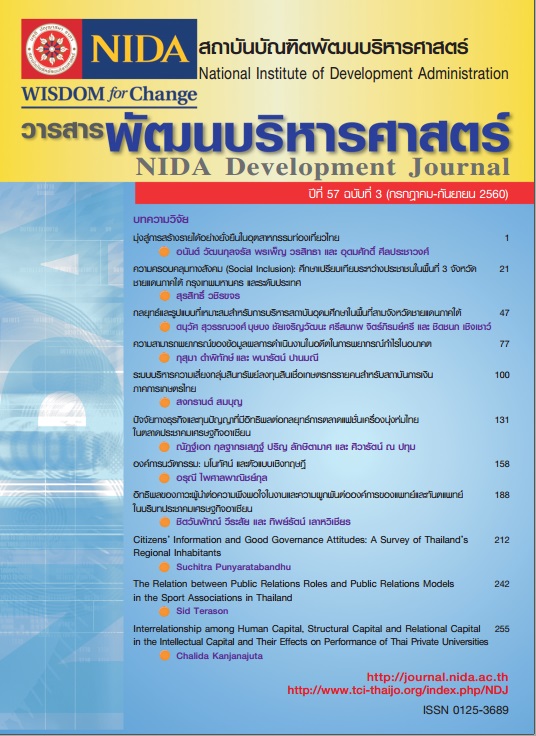Citizens' Information and Good Governance Attitudes:A Survey of Thailand's Regional Inhabitants
Keywords:
Good Governance, Attitudes, Information, ThailandAbstract
This article investigates the relationship between citizen information variables and good governance attitudes. Linkages among information, the news media as a channel for disseminating information, and good governance are often assumed, but in the case of Thailand there has been little empirical corroboration of this relationship. This study reports findings based on a sample of 3,033 respondents surveyed in the northern, northeastern, central and southern regions of Thailand. The OLS regression analysis revealed that the information variables were positively but weakly associated with good governance attitudes. Of the three information variables, knowing citizens' rights had the strongest relationship with good governance attitudes. Of the remaining variables in the equation, intended to function as the control variables, educational attainment was positively related to good governance attitudes, but the degree of urbanization, surprisingly, was negatively related. Satisfaction with the government's ability to solve problems (a proxy for rational trust) and trust in public officials (relational trust) were negatively associated with good governance attitudes. Citizens that are satisfied with and trust the government may feel less need to show attitudinal support for good governance. Successful implementation of governance reforms requires mutually-supportive and cooperative relationships among stakeholders. Good governance attitudes may be strengthened through the dissemination of information to citizens regarding their legal entitlements, as well as information regarding public agencies’ resources, legal mandates, procedures, and practices.





